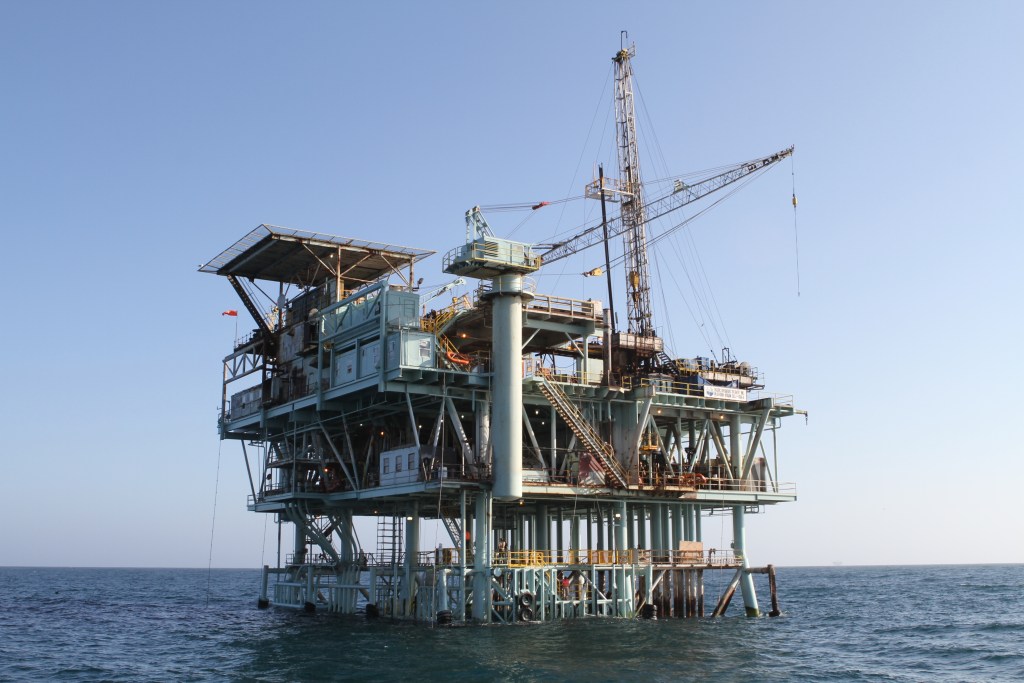Last Friday, Carone Petroleum was way more than a day late and a dollar short. By then, the small, Carpinteria-based oil company was four years late on the $350,000 it owes the State of California for leasing rights in state waters off the coast of Carpinteria. Even by the time the State Lands Commission met in San Diego to determine the company’s fate, Carone had failed to raise the necessary funds. Company employees and managers had passed the hat and managed to scrape together $172,000. Carone attorney Bruce Cowen pledged he would make up the difference.
But it was too late.
State Lands commissioners wondered how a company with 51 workers — many of whom showed up to beg for their jobs — and two offshore oil platforms in federal waters couldn’t pay its rent for four years. They also wondered whether such a company could be trusted to operate safely in state waters. While expressing regret for the jobs lost, the commissioners unanimously voted “no” on renewing Carone’s lease.
As public meetings went, last week’s proceedings were both heart-wrenching and weird. But in terms of oil development in the Santa Barbara Channel, it marked a turning point. “This means there are no more oil and gas leases in state waters anywhere off the coast of Santa Barbara County from Gaviota to Carpinteria,” said Linda Krop, chief counsel for the Environmental Defense Center, who represented the Los Padres Chapter of the Sierra Club. “This is huge.”
The ramifications for offshore oil and development in federal waters, she said, could be bigger still. (State waters run from mean high tide to three miles out; beyond that, federal jurisdiction holds sway.) Last Friday’s lease terminations could effectively shut down the two platforms Carone now operates in federal waters off Carpinteria’s coast, Platforms Hogan and Houchin. These two are served by an underwater pipeline that runs from federal waters across the state-owned leases the State Lands Commission just terminated. With that, Krop stated, production at these two platforms — roughly a thousand barrels a day — is effectively blocked.
In 1996, Carone acquired these leases from Chevron and ExxonMobil, as well as the two platforms and an oil and gas processing plant in La Conchita. The plan — complicated from both a political and engineering perspective — was to drill 25 extended-reach wells from Platform Hogan into state waters and suck the oil from subsurface reserves. Environmentalists worried Platform Hogan was too old and rickety to handle the load; they demanded it be able to weather seismic reverberations inflicted by thousand-year earthquakes.
Carone’s interest in the plan quickly waned. Studies went unfunded. Applications languished. By 2009, the State Lands Commission complained Carone was behind on rent and threatened to pull the plug. By 2011, the company got back on track, but by 2015, it was in arrears again. It would never recover.
For Carone’s attorney, it was a tough sell. There was the Thomas Fire, which inflicted $3 million worth of uninsured damage, and the six market dips, but the company always bounced back and paid its bills, said Cowen. To pull the plug meant the loss of 51 jobs and $12 million a year into the local economy. “Maybe our communication could have been better,” he conceded. But so could the State Lands Commission’s, he said. Carone had to endure 15 months of radio silence from the commission when the company had first proposed payments on the installment plan. Then, just nine days before the meeting, Carone was notified State Lands was terminating the lease. “It would have been nice to be notified,” he objected, later adding, “If you give us a chance, we will be good citizens.”
Jennifer Lucchesi, executive director of the commission, wasn’t buying it. “The promises that are made today should be taken at face value with a grain of salt.” Commissioner Betty Yee, who serves as state auditor controller, challenged Cowen. “You thought you didn’t have to pay?”
More compelling were the many Carone workers who testified. One had worked for the company 29 years, one two months. They had children, wives, and car payments, they testified. One had a girlfriend he was putting through college. One testified he did not wish be forced “to join the ranks of the unfortunate.” Of Carone, another said, “They gave me a good, proud life. If they made mistakes in the front office, I’m sorry.”
Even the environmentalists lobbying for commissioners to terminate the lease were moved. “You’d have to have a heart of stone not to be affected by their testimony,” said one speaker for the Sierra Club.
Yee expressed bewilderment how a company with so many employees could fail to pay rent on “the fundamental basis of their whole operation” and expressed hope the company would help its employees find new jobs as the nation undergoes an “energy transition.”

